 W
WErkki Aaltonen was a Finnish composer.
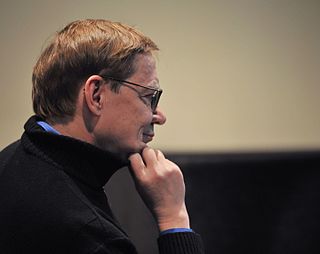 W
WKalevi Ensio Aho is a Finnish composer.
 W
WErik Valdemar Bergman was a composer of classical music from Finland.
 W
WBernhard Henrik Crusell was a Swedish-Finnish clarinetist, composer and translator, "the most significant and internationally best-known Finnish-born classical composer and indeed, — the outstanding Finnish composer before Sibelius".
 W
WSven Einar Englund was a Finnish composer.
 W
WSebastian Fagerlund is a Finnish composer. He is described as “a post-modern impressionist whose sound landscapes can be heard as ecstatic nature images which, however, are always inner images, landscapes of the mind”. Echoes of Western culture, Orienta l music and heavy metal may, for example, all be detected under the same Sky in the music of Fagerlund.
 W
WEero Olavi Hämeenniemi is a Finnish composer, musician and writer. He is a docent and professor at the University of the Arts Helsinki.
 W
WPekka Juhani "P. J." Hannikainen was a Finnish composer and the head of the musical branch of the prominent Hannikainen family. His uncle was the writer and journalist Pietari Hannikainen.
 W
WEdvard Armas Järnefelt, was a Finnish conductor and composer, who achieved some minor success with his orchestral works Berceuse and Praeludium. He spent much of his conducting career at the Royal Swedish Opera in Stockholm, Sweden.
 W
WRobert Kajanus was a Finnish conductor, composer, and teacher. In 1882, he founded the Helsinki Orchestral Society, Finland's first professional orchestra. As a conductor, he was also a notable champion and interpreter of the music of Jean Sibelius.
 W
WYrjö Henrik Kilpinen was a Finnish composer. He was born in Helsinki, and in 1907 he started his studies in the Helsingin Musiikkiopisto. In 1910 Kilpinen moved to Vienna to continue his studies and from 1913 to 1914 he studied in Berlin. He travelled extensively in Scandinavia and central Europe, especially Germany. He became an honorary professor in 1942 and was elected to the Finnish Academy in 1948.
 W
WUuno (Kalervo) Klami was a Finnish composer. He was born in Virolahti. Many of his works are related to the Kalevala. He was influenced by French and Spanish music, and especially by Maurice Ravel, for whom he had a particular esteem.
 W
WJoonas Kokkonen was a Finnish composer. He was one of the most internationally famous Finnish composers of the 20th century after Sibelius; his opera The Last Temptations has received over 500 performances worldwide, and is considered by many to be Finland's most distinguished national opera.
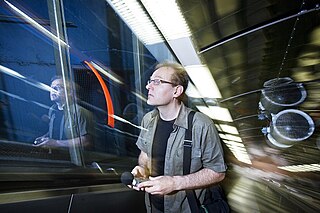 W
WPetri Kuljuntausta is a Finnish composer, musician, sound artist and author of three books on electronic music and sound art. Since the 1990s he has belonged to a new generation of composers in Finland interested in experimental and electronic music.
 W
WToivo Timoteus Kuula was a Finnish composer and conductor of the late-Romantic and early-modern periods, who emerged in the wake of Jean Sibelius, under whom he studied privately from 1906 to 1908. The core of Kuula's oeuvre are his many works for voice and orchestra, in particular the Stabat mater, The Sea-Bathing Maidens (1910), Son of a Slave (1910), and The Maiden and the Boyar's Son (1912). In addition he also composed two Ostrobothnian Suites for orchestra and left an unfinished symphony at the time of his death in 1918.
 W
WIlkka Taneli Kuusisto is a Finnish composer of popular opera and father of Jaakko Kuusisto and Pekka Kuusisto. He was born in Helsinki, and was the general manager of the Finnish National Opera between 1984 and 1992.
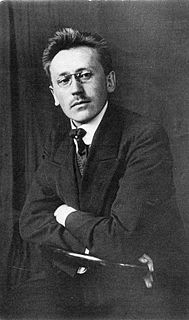 W
WArmas Launis, was a Finnish composer as well as an ethnomusicologist, a professor, a writer and a journalist. He was born in Hämeenlinna.
 W
WHelvi Lemmikki Leiviskä was a Finnish composer, writer, music educator and librarian at the Sibelius Academy.
 W
WMagnus Gustaf Adolf Lindberg is a Finnish composer and pianist. He was the New York Philharmonic's composer-in-residence from 2009 to 2012 and has been the London Philharmonic Orchestra's composer-in-residence since the beginning of the 2014–15 season.
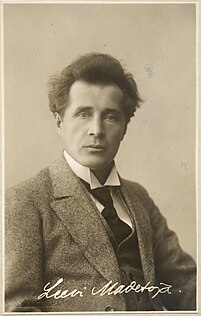 W
WLeevi Antti Madetoja was a Finnish composer, music critic, conductor, and teacher of the late-Romantic and early-modern periods. He is widely recognized as one of the most significant Finnish contemporaries of Jean Sibelius, under whom he studied privately from 1908–10.
 W
WJaakko Mäntyjärvi is a Finnish composer of classical music, and a professional translator.
 W
WErkki Melartin was a Finnish composer. He was a pupil of Martin Wegelius from 1892 to 1899 in Helsinki and of Robert Fuchs from 1899 to 1901 in Vienna.
 W
WAarre Merikanto was a Finnish composer.
 W
WFrans Oskar Merikanto was a Finnish musician and composer.
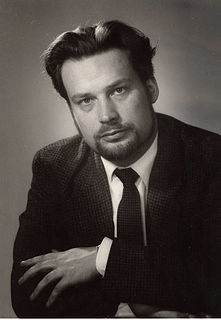 W
WUsko Aatos Meriläinen was a Finnish composer. He was born in Tampere.
 W
WErnst Mielck was a Finnish composer.
 W
WIda Georgina Moberg was a Finnish composer and conductor. She was born in Helsinki, and took piano and singing lessons as a child.
 W
WPehr Henrik Nordgren was a Finnish composer.
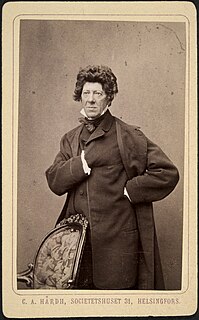 W
WFredrik Pacius was a German-Finnish composer and conductor who lived most of his life in Finland. He has been called the "Father of Finnish music".
 W
WSelim Gustaf Adolf Palmgren was a Finnish composer, pianist, and conductor. Palmgren was born in Pori, Finland, February 16, 1878. He studied at the Conservatory in Helsinki from 1895 to 1899, then continued his piano studies in Berlin with Ansorge, Berger and Busoni. He conducted choral and orchestral societies in his own country and made several very successful concert tours as a pianist in the principal cities of Finland and Scandinavia, appearing also as a visiting conductor. In 1921, he went to the United States, where he taught composition at the Eastman School of Music, later returning to Finland, where he died in Helsinki, aged 73. Palmgren was married to the opera singer Maikki Järnefelt.
 W
WErnest Pingoud was a Finnish composer.
 W
WOsmo Tapio Everton Räihälä is a Finnish composer of contemporary music. He has mainly written instrumental music for various chamber music line-ups, five concertos as well as for symphony orchestra.
 W
WTomi Räisänen is a Finnish composer.
 W
WVäinö Eerikki Raitio was part of the small group of composers who appeared in the Finnish art music scene in the 1920s with a new cosmopolitan music style, very different from the dominant conservative National Romanticism.
 W
WEinojuhani Rautavaara was a Finnish composer of classical music. He is among the most notable Finnish composers since Jean Sibelius (1865–1957).
 W
WAulis Sallinen is a Finnish contemporary classical music composer. His music has been variously described as "remorselessly harsh", a "beautifully crafted amalgam of several 20th-century styles", and "neo-romantic". Sallinen studied at the Sibelius Academy, where his teachers included Joonas Kokkonen. He has had works commissioned by the Kronos Quartet, and has also written seven operas, eight symphonies, concertos for violin, cello, flute, horn, and English horn, as well as several chamber works. He won the Nordic Council Music Prize in 1978 for his opera Ratsumies.
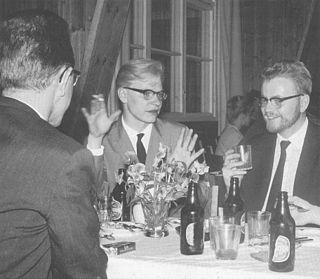 W
WErkki Olavi Salmenhaara was a Finnish composer and musicologist.
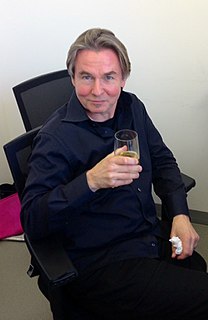 W
WEsa-Pekka Salonen is a Finnish orchestral conductor and composer. He is principal conductor and artistic advisor of the Philharmonia Orchestra in London, conductor laureate of the Los Angeles Philharmonic, and music director of the San Francisco Symphony.
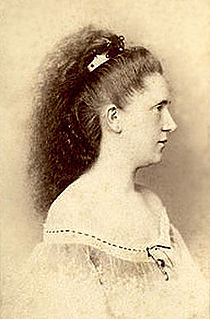 W
WIngeborg Bronsart von Schellendorf was a Finnish-German composer.
 W
WLeif Selim Segerstam is a Finnish conductor, composer, violinist, violist and pianist, especially known for writing 342 symphonies as of September 2020, along with other works in his extensive oeuvre.
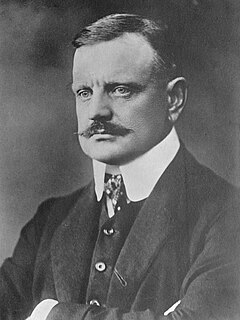 W
WJean Sibelius, born Johan Julius Christian Sibelius, was a Finnish composer and violinist of the late Romantic and early-modern periods. He is widely recognized as his country's greatest composer and, through his music, is often credited with having helped Finland to develop a national identity during its struggle for independence from Russia.
 W
WErna Tauro, née Pergament, was a Finnish-Swedish pianist and composer.
 W
WErik Eriksson Tulindberg was the first known Finnish composer of classical music.
 W
WMartin Wegelius was a Finnish composer and musicologist, primarily remembered as the founder, in 1882, of the Helsinki Music Institute, now known as the Sibelius Academy.
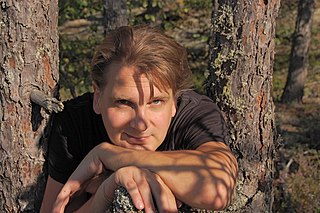 W
WAki Yli-Salomäki is a Finnish composer, music critic and music journalist. Yli-Salomäki's works are often built on atmospheres, continuity and resonance. In addition to contemporary classical music, he also works as a composer and producer in popular music.